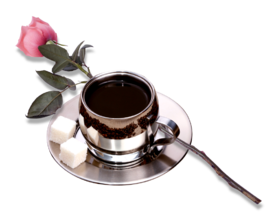Description of Manor Flavor of Coffee Bean Grinding scale varieties in Jinchu Valley, Kenya
Description of Manor Flavor of Coffee Bean Grinding scale varieties in Jinchu Valley, Kenya
Is the manor bean better or the small farm bean better? There is no absolute answer to this question, Joseph said. Because the Kenyan coffee industry is made up of 75% of smallholder cultivation and 25% of manor cultivation. Compared with small farmers, manor planting has the advantages of advanced technology and unified management, while small farmers take good care of and use more organic fertilizers than manor planting. In addition, regional factors and weather factors also affect the quality of coffee, so it is difficult to decide which is better or worse. In Sika, most coffee is grown separately by farmers and then sold to processing factories by rural cooperatives. Farmers are United. In order to sell their coffee at a better price, they constantly increase the need for agronomy and the development of high-quality coffee tree species, urge each other and encourage neighbors not to cheat, thus greatly promoting the development of coffee in Kenya.
It entered Kenya in the 19th century, when Ethiopian coffee drinks were imported into Kenya through southern Yemen. But it was not until the early 20th century that the bourbon was introduced by the St. Austen Mission (St.AustinMission).
Kenyan coffee is mostly grown at an altitude of 1500m, 2100m, and is harvested twice a year. To ensure that only ripe berries are picked, people must tour the forest about seven times. Kenyan coffee is grown by small farmers. After they harvest the coffee, they first send the fresh coffee beans to the cooperative cleaning station. The washing station sends the dried coffee to the cooperative in the form of "parchment coffee beans" (that is, coffee beans covered with endocarp) to the cooperative ("parchment coffee beans" is the last state of coffee beans before peeling). All the coffee is collected together, and the growers charge the average price according to their actual quality. This trading method generally works well and is fair to both growers and consumers in a mild climate. The rainy season is from March to June and from October to December, and the rest is dry season. The annual rainfall decreases from 1500 mm to 200mm from southwest to northeast. Nairobi, the capital, has a mild climate, with an average annual temperature of 17.7C and annual rainfall of 1049 mm. Kenya's mineral deposits are mainly soda ash, salt, fluorite, limestone, barite, gold, silver, copper, aluminum, zinc, niobium and thorium, except soda ash and fluorite. Most mineral deposits have not yet been developed. The main minerals are barite near Tamota in the southeast, niobium in the Mlima Mountains and gold from Kakamaga and Makajie in the southwest. Kyrgyzstan is one of the largest diatomite mines in the world, and Lake Magadi is rich in natural alkali and salt. The Kenyan flag is based on pre-independence Kenya.

Important Notice :
前街咖啡 FrontStreet Coffee has moved to new addredd:
FrontStreet Coffee Address: 315,Donghua East Road,GuangZhou
Tel:020 38364473
- Prev

Introduction to the Grinding scale of Tarazhu Coffee beans in Costa Rica
Introduction to the Grinding scale varieties of Tarazu Coffee beans in Costa Rica the National Liberation Party won four times in the six general elections from 1953 to 1978. During its reign, the party emphasized state intervention in the economy, nationalization of some industries, increased import taxes to protect national industries, forced United fruit companies to increase income tax, strengthened relations with other Latin American countries and Western Europe, and changed the order.
- Next

Guatemala Pacamara Coffee Bean Roast Flavor Description Estate Introduction
Guatemala Pacamara Coffee Bean Roast Degree Flavor Description Estate Producing Area Introduction Between 1950 and 1954, when President Jacobo Árbenz was in power, agrarian reform was implemented, and large landowners, who accounted for 2% of the country's population, occupied about 70% of the country's arable land.Árbenz wrote a check for agrarian reform, promising to buy up land held by large landowners and redistribute it to small farmers. Arbens won with it.
Related
- Detailed explanation of Jadeite planting Land in Panamanian Jadeite Manor introduction to the grading system of Jadeite competitive bidding, Red bid, Green bid and Rose Summer
- Story of Coffee planting in Brenka region of Costa Rica Stonehenge Manor anaerobic heavy honey treatment of flavor mouth
- What's on the barrel of Blue Mountain Coffee beans?
- Can American coffee also pull flowers? How to use hot American style to pull out a good-looking pattern?
- Can you make a cold extract with coffee beans? What is the right proportion for cold-extracted coffee formula?
- Indonesian PWN Gold Mandrine Coffee Origin Features Flavor How to Chong? Mandolin coffee is American.
- A brief introduction to the flavor characteristics of Brazilian yellow bourbon coffee beans
- What is the effect of different water quality on the flavor of cold-extracted coffee? What kind of water is best for brewing coffee?
- Why do you think of Rose Summer whenever you mention Panamanian coffee?
- Introduction to the characteristics of authentic blue mountain coffee bean producing areas? What is the CIB Coffee Authority in Jamaica?

